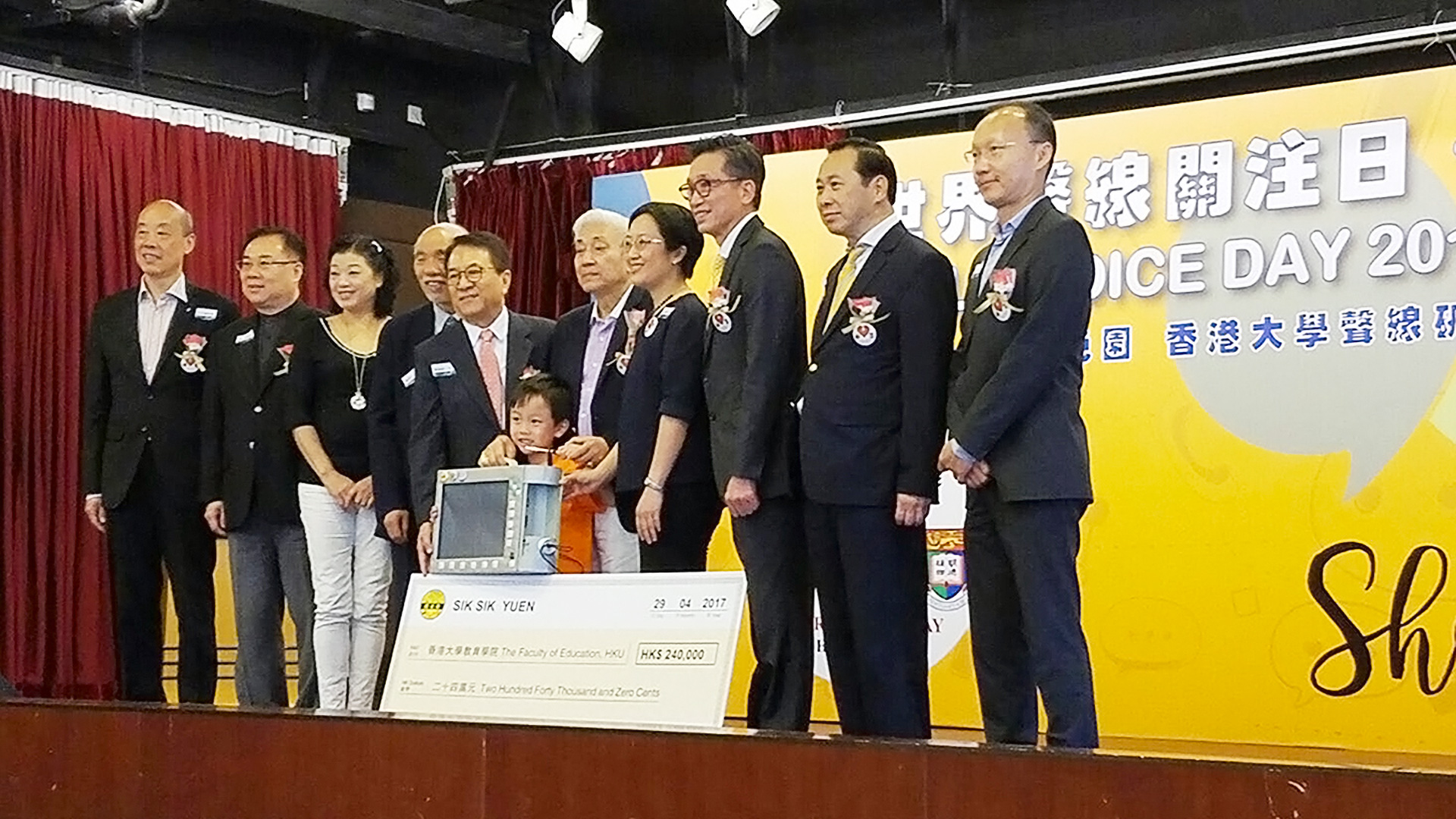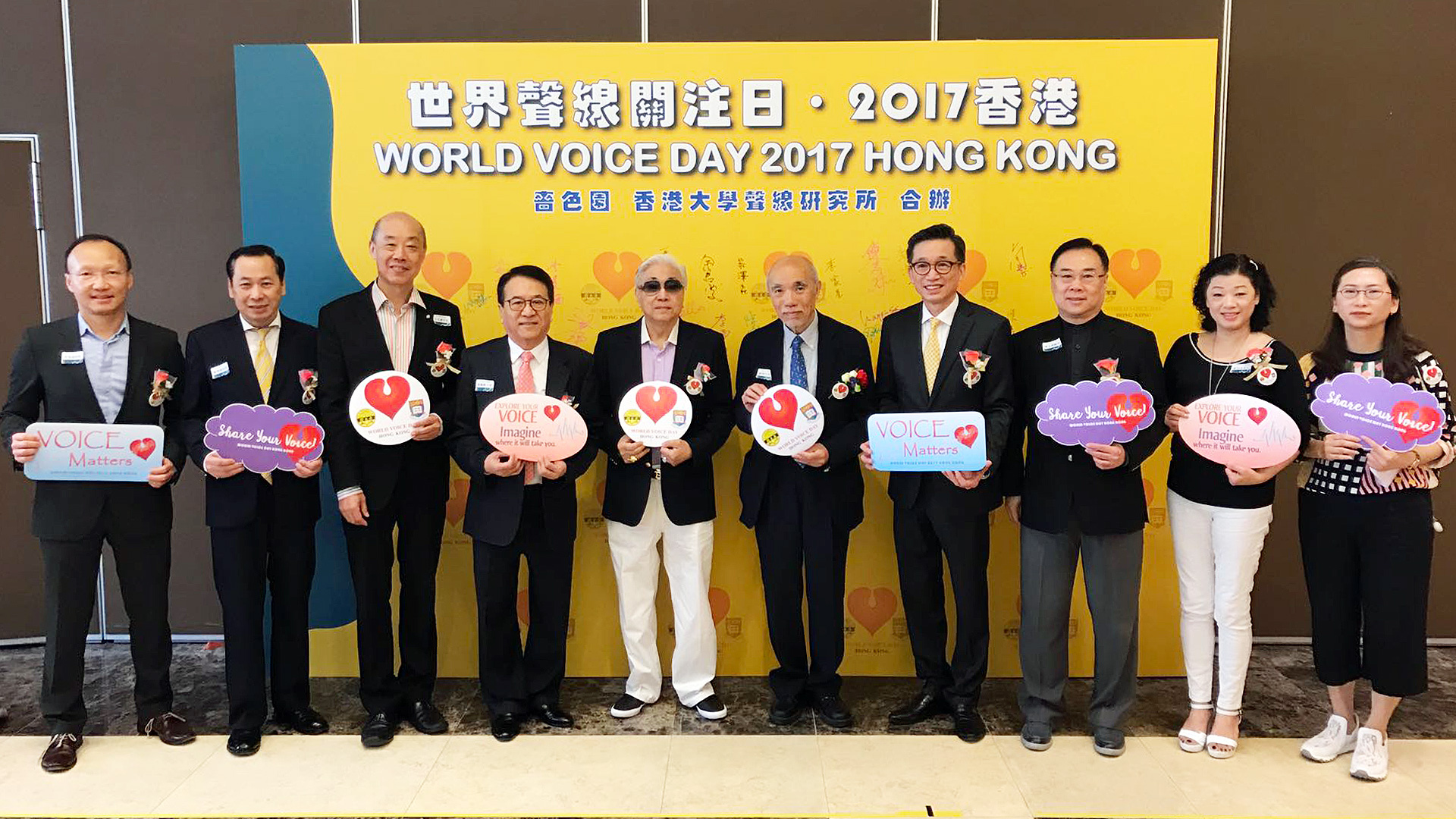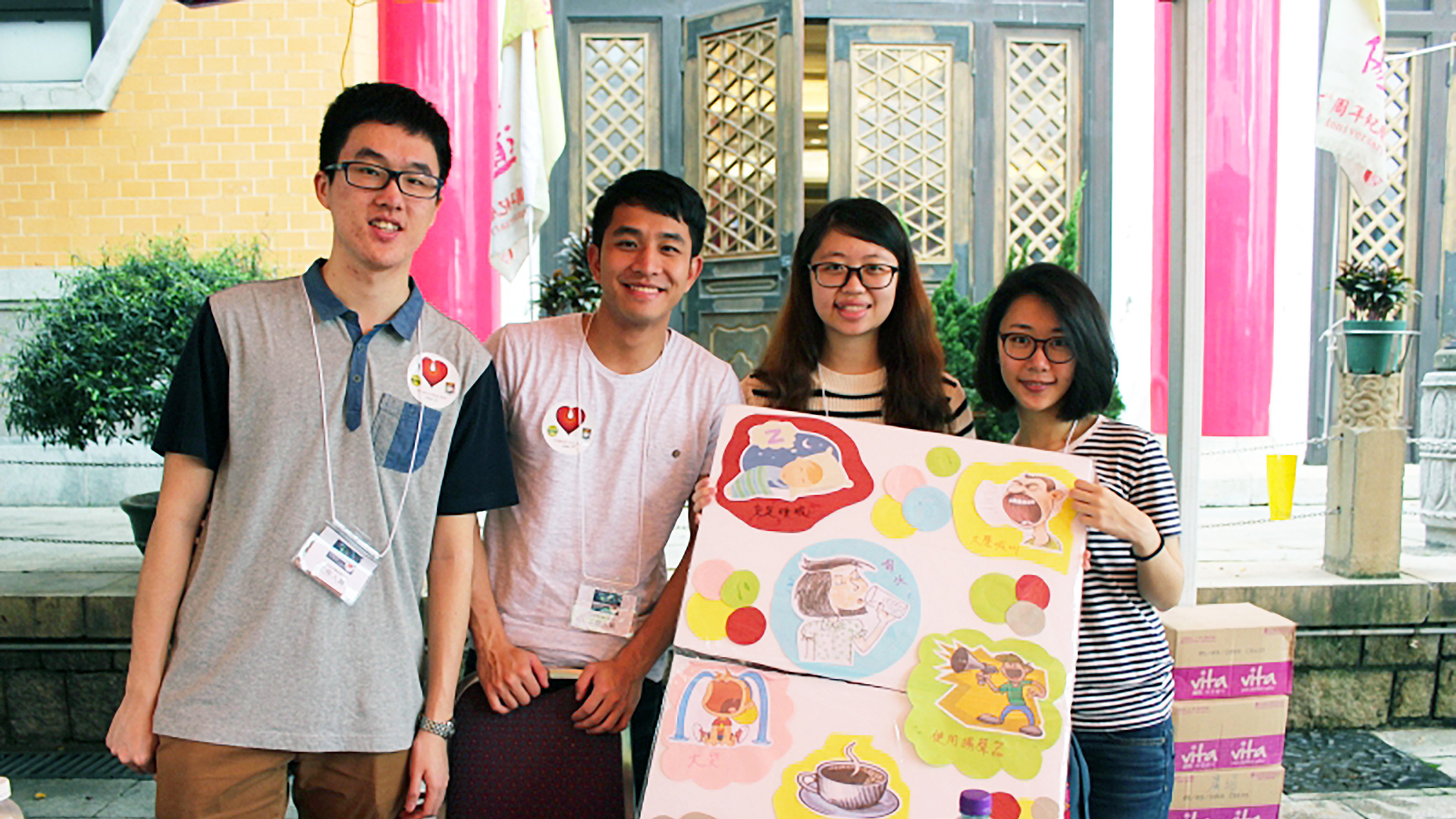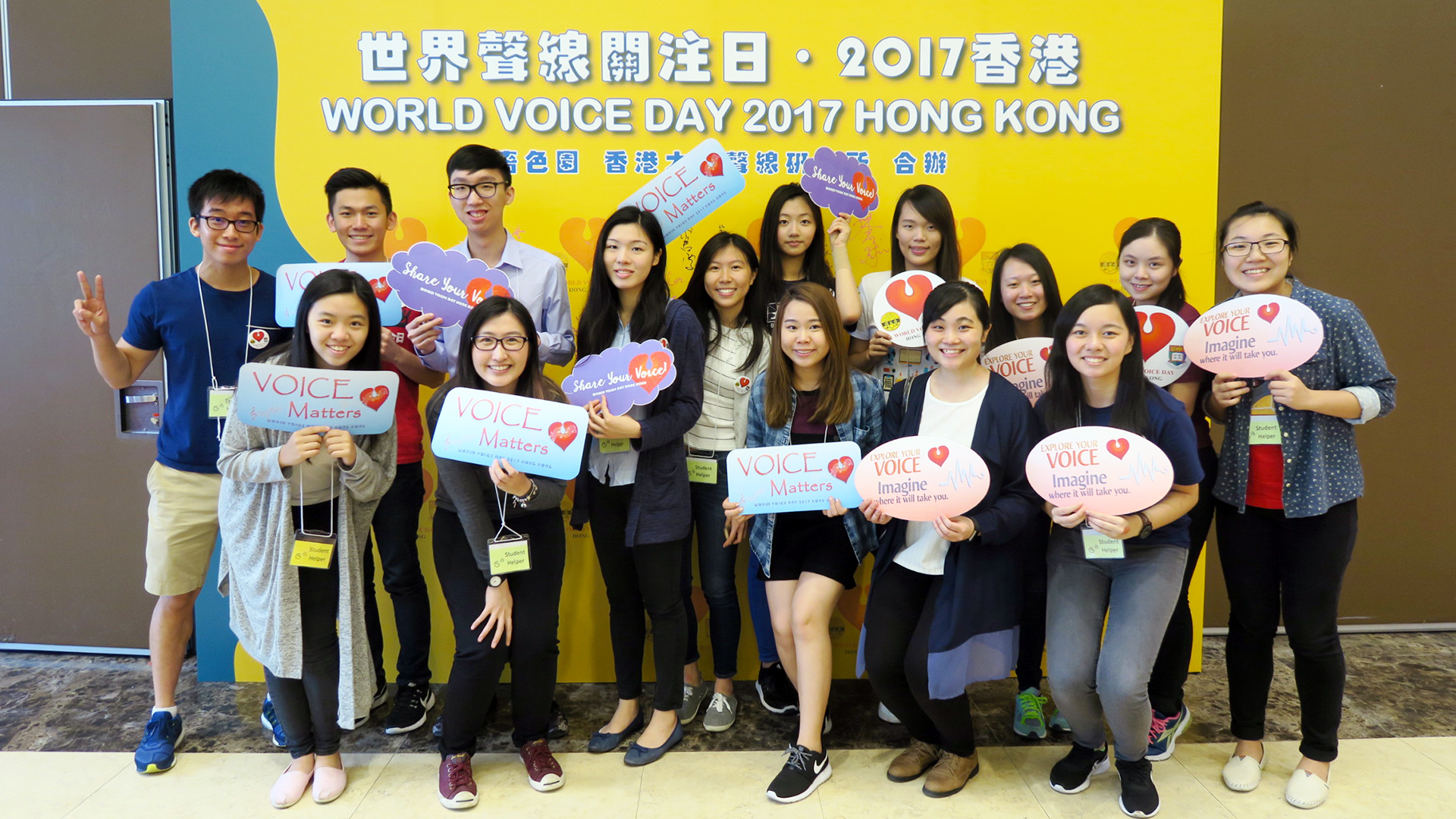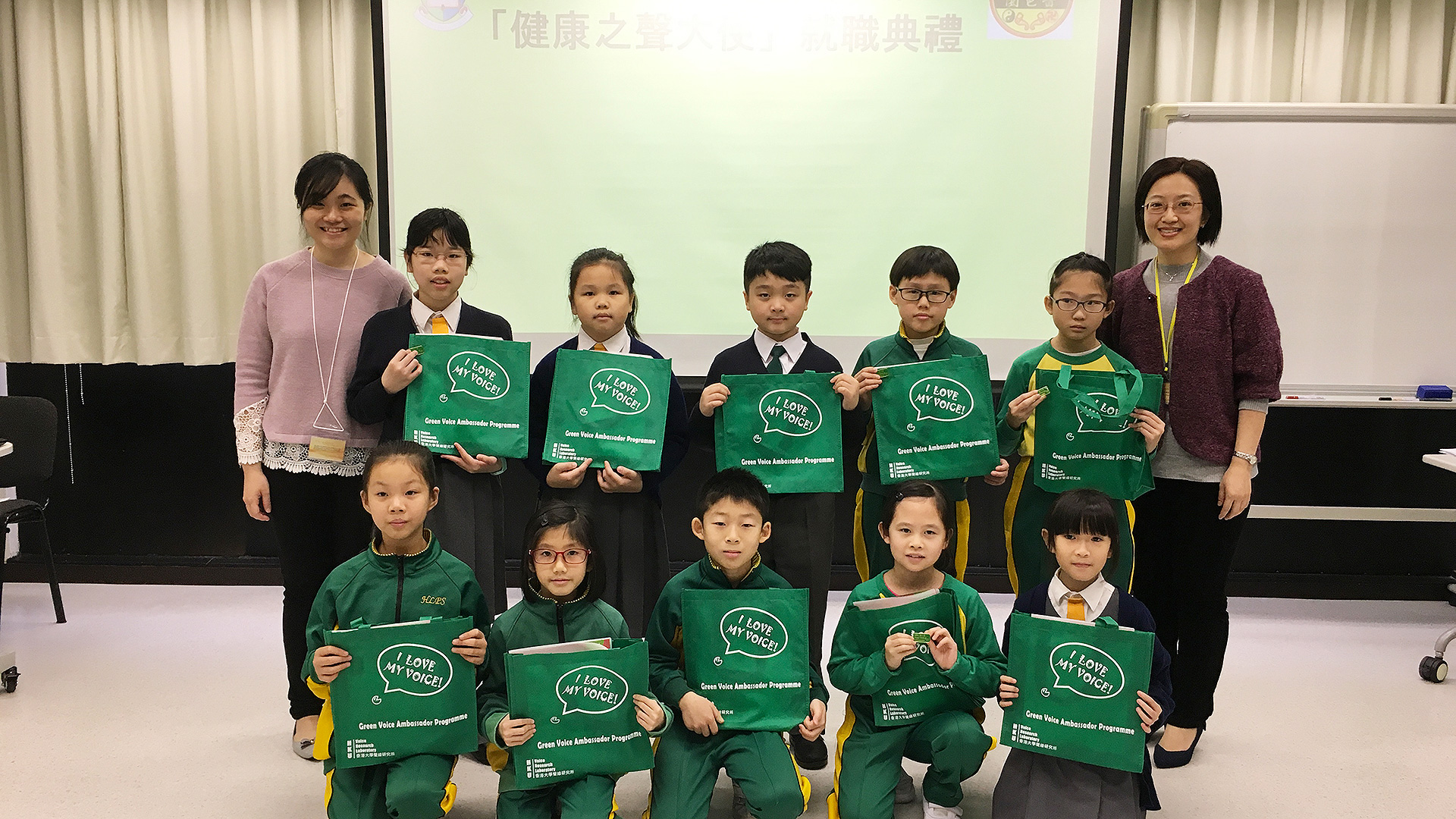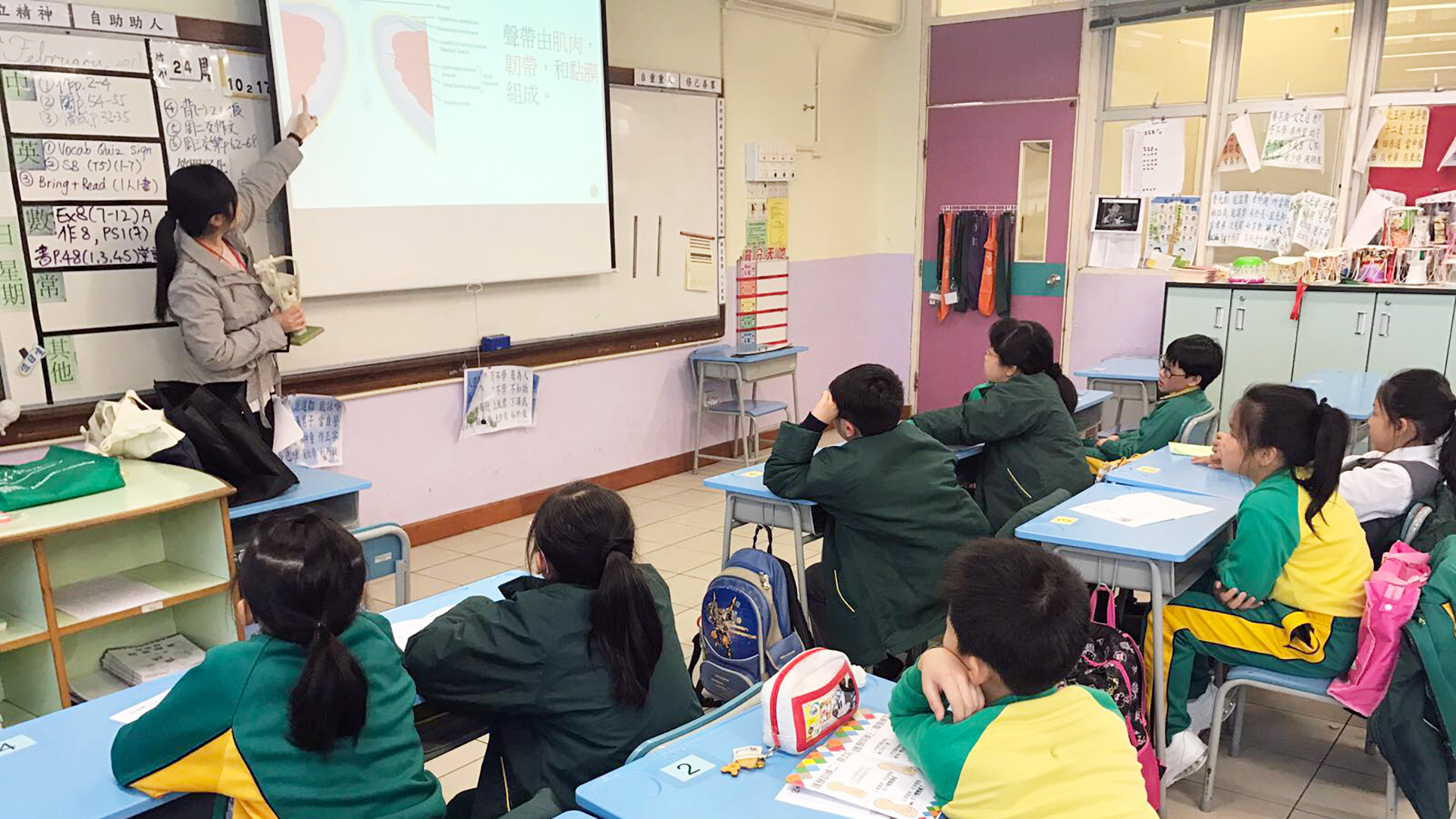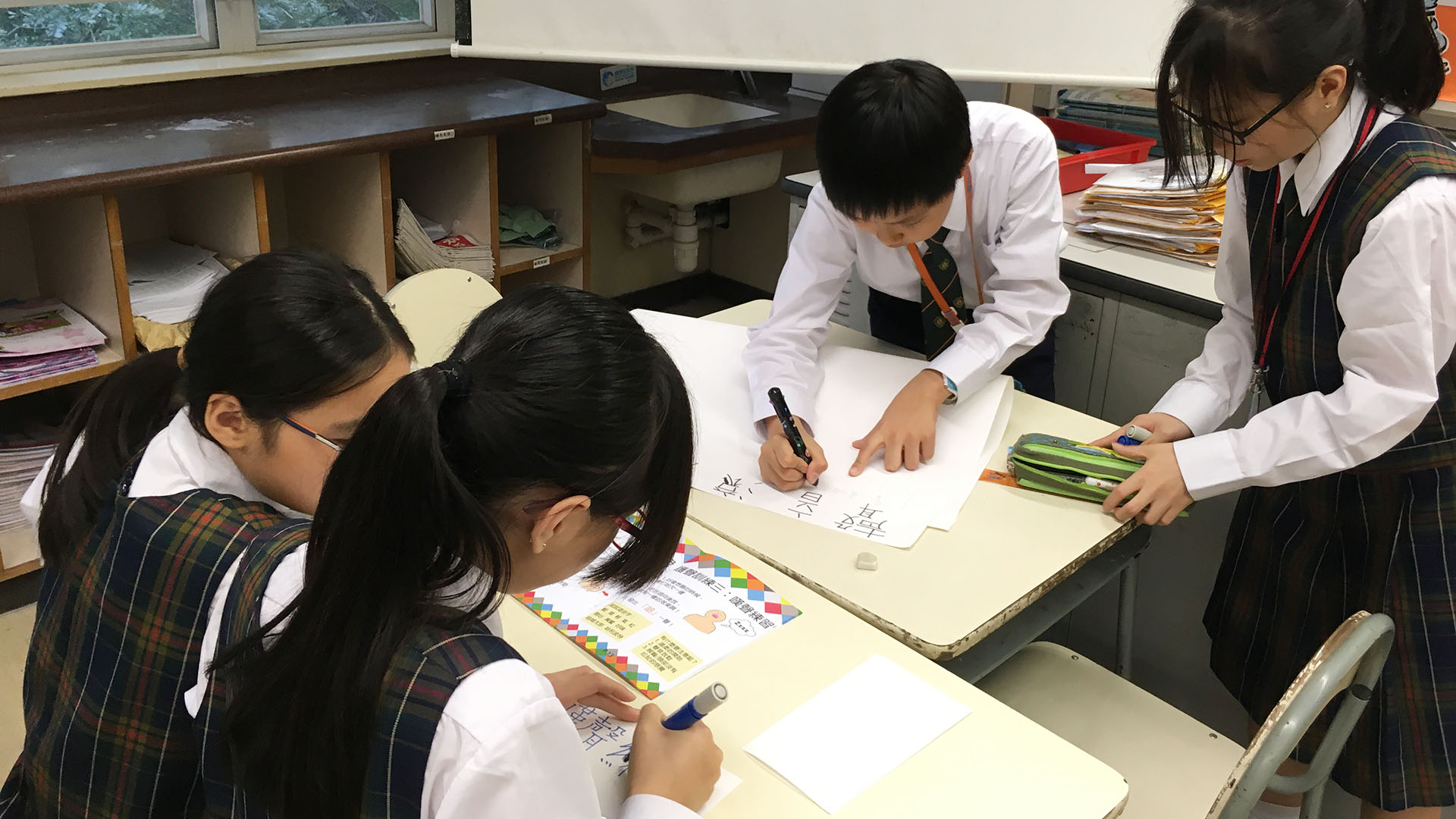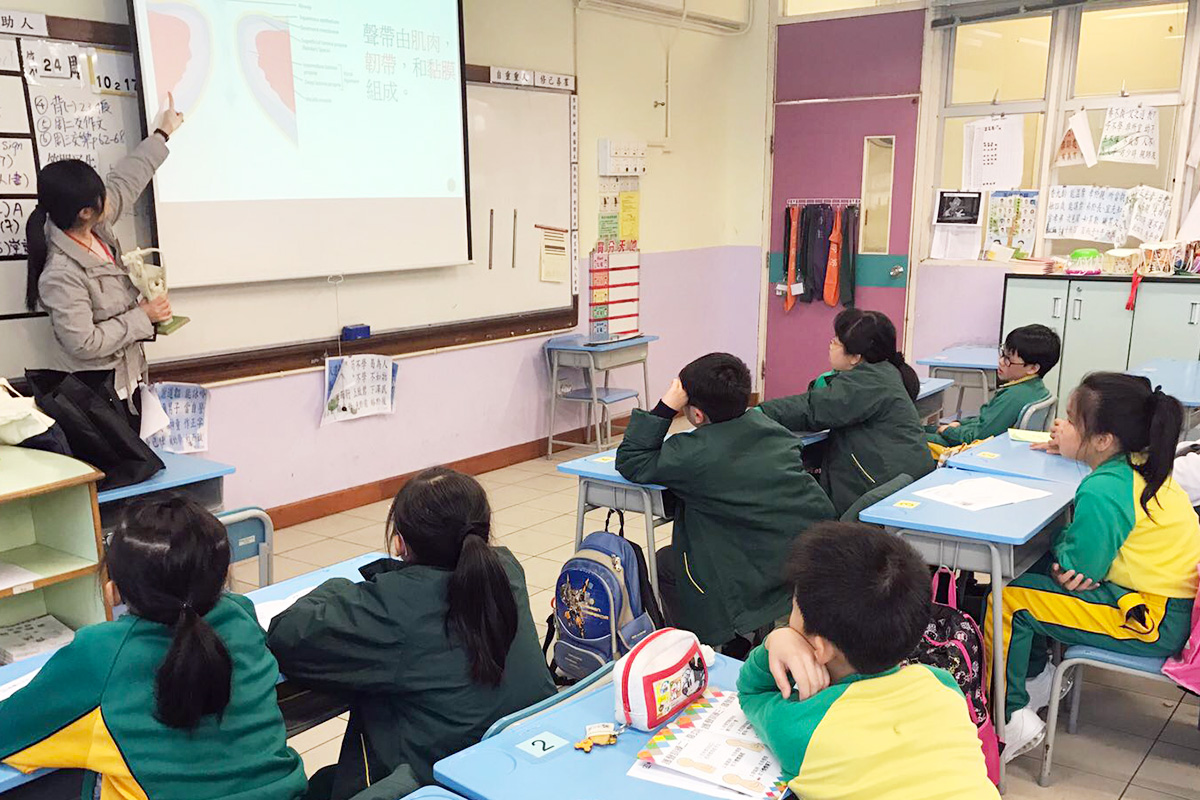
Green Voice Ambassador
Sponsored by the Knowledge Exchange Fund of the University of Hong Kong
Aim
To raise awareness of vocal health and improve vocal hygiene knowledge among Hong Kong primary school students, their parents, and teachers.
Why Students?
Voice problems are common in children. This project is developed based on the line of research on pediatric voice disorders conducted by the Voice Research Lab. According to a study on 185 primary school students (Ng, 2014), 9.6% of the participating students were identified as having chronic deviant voice qualities of at least moderate to severe level. Voice problems in children could lead to significant poorer voice qualities and negative impacts on their quality of life (Lam, 2013; Tang, 2016). Children with voice problems can receive negative and biased impressions by school teachers. They were rated less favorable in appearance and personality than healthy voice children (Ma & Yu, 2013) and lower acceptability by peers (Lee, 2014).
Most voice problems in children can be prevented. Education for children on voice care is important. Parents exert prominent effect in children’s development and play a crucial role in children’s health education and building good health habit. Parental knowledge, attitude and practice in voice care are important in preventing voice problem in children. A survey was carried out with 506 parents for their knowledge, attitude, and practice towards voice care in children (Ma & Mo, 2010). The results suggested that parents were generally positive towards implementing voice care in children. They considered voice care as important for their children. However, parents implemented voice care with children only occasionally. The two highest-ranked barriers hindering the implementation of voice care in children reported by parents were "I do not know what voice care is about" and "I do not know how to implement voice care in children". In summary, our research suggests that voice problems in children warrant attention, and educational program for children and parents are needed.
Project Activities
During 2016 to 2017, 40 primary school students were nominated from 4 schools sponsored by Sik Sik Yuen to be the Green Voice Ambassadors. Throughout the academic year, they and their parents received a series of training, including:
- 6 sessions of weekly training workshops for Ambassadors on vocal hygiene and healthy voice use by speech therapist
- Educational seminars and training workshops for parents on how to implement vocal hygiene with young children at home by speech therapists
- A trip to the Voice Research Lab in the University of Hong Kong to experience equipment in assisting voice assessment and treatment
After the training, the Ambassadors promote voice care awareness among their peers at school, as well as engaging in activities for promoting healthy voice use. The Ambassadors helped to organize the Green Voice Week to raise students’ awareness of the importance of having a healthy voice. During that week, teachers and students from the whole school participated in activities related to vocal hygiene and healthy voice use, such as game booths and performances. Posters that serve as reminders for students on healthy voice use were posted around the school campus. The Ambassadors also showcased their game booth in the World Voice Day 2017, promoting the importance of voice care with the general public.
Research Output
Ma, E. P.-M., & Leung, H. K.-H. (2020, accepted on 18 Sept 2019). One-year follow-up of a vocal hygiene program for school-age children. Folia Phoniatrica et Logopedica.
Abstract
Objective: This study investigated the effects of a school-based vocal hygiene education program "Green Voice for School" on promoting knowledge of healthy voice use for primary school students.
Methods: Thirty-nine grade 4 and 5 students from local primary schools participated in the "Green Voice for School" program. Students received 6 weekly vocal hygiene training sessions with the aim of enhancing their voice care knowledge. Their voice care knowledge was assessed by a 15-item questionnaire. Students’ voice care knowledge was examined before training, immediately after, and 1 year after completion of the program.
Results: Students showed significant improvements in their voice care knowledge immediately after they received the vocal hygiene training sessions. Such improvements were maintained 1 year after the students completed training.
Conclusions: The results suggest that "Green Voice for School", a school-based vocal hygiene education program, can be effective in promoting long-term improvements of voice care knowledge in school-age children.
Reference
Chan, K. M.-K., Li, C.M., Ma, E. P.-M., Yiu, E. M.-L., & McPherson, B. (2015). Noise levels in urban Asian school environments. Noise and Health, 17(74), 48-55.
Lee, T. K.-Y. (2014). Peer acceptance and teacher preference towards children with voice problems. [Unpublished thesis of Master of Philosophy, the University of Hong Kong]. The HKU Scholars Hub. https://hub.hku.hk/handle/10722/202376.
Ma, E. P.-M., & Yu, C. H.-Y. (2013). Listeners’ attitudes toward children with voice problems. Journal of Speech, Language and Hearing Research, 56, 1409-1415.
Ma, E. P.-M., & Mo, M. L.-N. (2010). Parent’s perspective of voice care knowledge, attitude and practice: A Hong Kong perspective [Paper presentation]. The 28th World Congress of the International Association of Logopedics and Phoniatrics (IALP), Athens, Greece.
Ng, B. S.-P. (2014). Prevalence of repeated dysphonia among school-age children in Hong Kong. [Unpublished dissertation of Bachelor of Science, the University of Hong Kong]. The HKU Scholars Hub. http://hub.hku.hk/handle/10722/238925.

